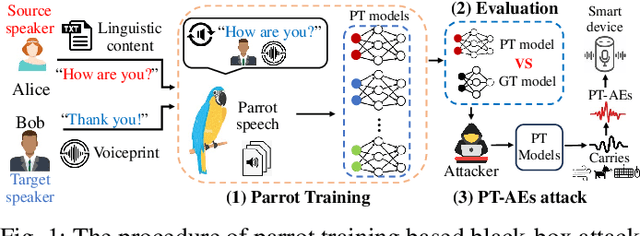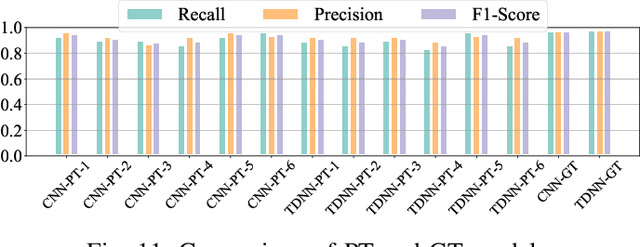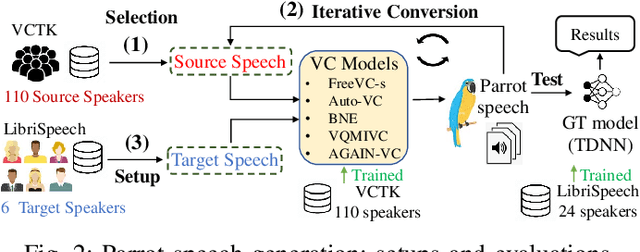Parrot-Trained Adversarial Examples: Pushing the Practicality of Black-Box Audio Attacks against Speaker Recognition Models
Paper and Code
Nov 17, 2023



Audio adversarial examples (AEs) have posed significant security challenges to real-world speaker recognition systems. Most black-box attacks still require certain information from the speaker recognition model to be effective (e.g., keeping probing and requiring the knowledge of similarity scores). This work aims to push the practicality of the black-box attacks by minimizing the attacker's knowledge about a target speaker recognition model. Although it is not feasible for an attacker to succeed with completely zero knowledge, we assume that the attacker only knows a short (or a few seconds) speech sample of a target speaker. Without any probing to gain further knowledge about the target model, we propose a new mechanism, called parrot training, to generate AEs against the target model. Motivated by recent advancements in voice conversion (VC), we propose to use the one short sentence knowledge to generate more synthetic speech samples that sound like the target speaker, called parrot speech. Then, we use these parrot speech samples to train a parrot-trained(PT) surrogate model for the attacker. Under a joint transferability and perception framework, we investigate different ways to generate AEs on the PT model (called PT-AEs) to ensure the PT-AEs can be generated with high transferability to a black-box target model with good human perceptual quality. Real-world experiments show that the resultant PT-AEs achieve the attack success rates of 45.8% - 80.8% against the open-source models in the digital-line scenario and 47.9% - 58.3% against smart devices, including Apple HomePod (Siri), Amazon Echo, and Google Home, in the over-the-air scenario.
 Add to Chrome
Add to Chrome Add to Firefox
Add to Firefox Add to Edge
Add to Edge